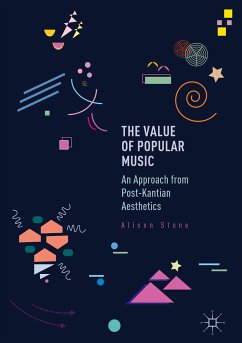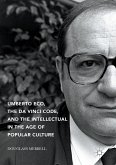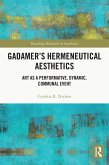Dieser Download kann aus rechtlichen Gründen nur mit Rechnungsadresse in A, B, BG, CY, CZ, D, DK, EW, E, FIN, F, GR, HR, H, IRL, I, LT, L, LR, M, NL, PL, P, R, S, SLO, SK ausgeliefert werden.
"This book outlines a persuasive esthetic of popular music rooted in the post-Kantian tradition, re-tools Adorno in order to allow his critique of popular music to be understood in relation to his wider authorship, and, most importantly, from the point of view of popular music scholarship, grounds that esthetic in an understanding of popular music ... ." (Stan Erraught, Popular Music and Society, Vol. 42 (4), 2019)
"This book stands as a powerful, and articulate, rejoinder to any lingering suspicion among philosophers that popular music lacks sophistication, beauty, or expressive power." (Michael Gallope, Popular Music, Vol. 38 (3) October, 2019)









